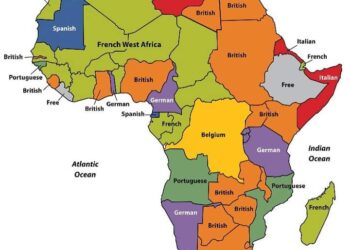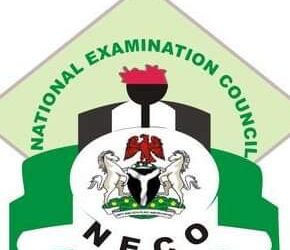Abdulyassar Abdulhamid
“No nation can sustain a robust, functional
and qualitative basic education without the
meaningful and strategic involvement of its
citizenry.”- Dr Hamid Bobboyi.
One thing all Nigerians unanimously agree on, said the celebrated columnist, Dr Bala Muhammad, of the Bayero University, Kano, is that the Nigeria national football team, Super Eagles, should be supported by all and sundry and the standard of education is falling. There is no dispute about this. Imagine lending similar collective support to our ailing education sector. What will be the end result?
Education, argued Howard E. Wilson, is one of our cultural traditions that is in jeopardy today and at the same time prophetic of our future. By implication, if basic education continues to receive the same harsh treatment as it does today, in no time the remaining traces of education in this country will be wiped out and that will be the end of our development as a nation. God forbid!
About a month ago, one radical don argued that Nigerian universities have degenerated into ‘super-secondary schools’ and the hope for recovery is not in sight. He attributed the decline in the quality of the universities to four factors. One of those factors militating against the over-all growth of the universities is poor quality students admitted into them.
However, other factors like government policies, inadequate funding, poor management, accumulative knowledge of educative process, societal aims and community participation, as education does not take place in a vacuum, influence the outcomes of our education industry and our perception of it.
Today, so to speak, lack of community participation in education has become the proverbial cog in the wheels of the educational development in the country. I am very much sure this year departments of English, mass communication and faculties of law in our universities will offer more admissions to students from private schools than public ones. Why? Literature in English has been co-opted into admission requirements of those courses; yet very few public schools especially in the north offer their students Literature in English, and the negligence from the community members, who should have improvised to fill in the gap, is crucifying the future of their children.
I have watched with rapt attention as some of our schools are reduced to uncompleted buildings or criminal hideouts of some sort. Weeds choke the premises, teachers avoid duties, and the offices burgled in the night.
Parents-teachers associations are just a scarecrow. They neither influence policy formulation nor add any value to the existing educational processes. Those that care have only the pleasure of meeting annually to exchange pleasantries.
It is against this background on Monday 26 August, 2019, hundreds of stakeholders including senior federal and state governments’ officials converged at the Coronation Hall, Government House, Kano, to witness the National Flag-off of the School-Based Management Committee-School Improvement Programme (SBMC-SIP) for the improvement of community participation in education.
According to the Director, Social Mobilization, UBEC, Alhaji Bello Kagara, the sum of N2,768908,275.44 has been earmarked under SBMC-SIP to support 2,505 communities across the thirty-six states of the federation including Abuja. The estimation is on construction only, with the option of supply of furniture, renovation, completion of abandoned structures and purchase of teaching/learning materials at the beneficiaries’ discretion.
On his part, the executive secretary, Universal Basic Education Commission, (UBEC), Dr. Hamid Bobboyi, said the commission has mapped out a strategy for school development whereby community-initiated ‘self-help’ projects would be executed by the SBMCs. Mark the phrase ‘community-initiated projects.
“SBMCs have been recognized globally as school development agents and the approach
[employed by the programme]
will also have the advantage of increasing the functionality of the SBMCs to be a vehicle for facilitating grassroots advocacy, sensitization and mobilization in favour of school development and the enrolment and retention of all categories of children in schools,” he said.
In addition to SBMC-SIP, UBEC has signed an MoU with the Commonwealth of Learning (CoL) for the implementation of the Open School Programme which has out-of-school children as its sole target. The commission engagement with various stakeholders cuts across infrastructural development through a special intervention programme, purchase of teaching and learning materials in the core subjects, teacher professional development, special need programmes as well as redefining the Almajiri system of education.
It is commendable that the federal government has acknowledged inadequate funding as one factor that is weighing down the education sub-sector. This had even given birth to a National Stakeholders Conference in 2018. The president had received a report and a committee that will see to the implementation of the framework on the viable recommendations constituted. Nevertheless, if care is not taken, the deep-seated poor community participation will beget mismanagement and ultimately give the committee a coup de grace. That is the end.
The question remains: how often do our communities initiate projects? The government cannot be completely cleared of the blame; but the community, in its own right, has a vital role to play in the provision, management, delivery and improvement of education. Community participation, as a concept, aims at bringing various stakeholders within the society together for educational policy-formulation, problem-solving and decision making.
For example, recently an official of the United Nations Children’s Fund (UNICEF) said that northern Nigeria carries the lion’s share of the number of the out-of-school children in Nigeria.
Perhaps motivated by his determination to change the narrative, Governor Ganduje of Kano State made a proclamation of free and compulsory primary and post-primary education in the state. Stakeholders, including leading educationists, traditional and religious institutions; and the media (for awareness and sensitization) have been engaged and a summit on the policy is coming up next month.
The governor has directed the five first class emirs of the state to take inventories of deviating parents and report them to the appropriate authorities for necessary actions. This certainly is a commendable move. It is an opportunity especially for the poor who cannot take their children to expensive private schools to explore.
Education, like security and other critical issues, is everyone’s business. Peasants, government, traditional and religious leaders – everyone – has a stake in it. There may well be lack of infrastructures including teaching and learning materials in many of our public schools; but with sincere school community participation in education process, these problems could be overcome.
In many instances our children, brothers and sisters take lesson under falling roofs, on bare floors and oftentimes facing deeply cracked blackboards. Why? Members of the society have failed to discharge their individual duties accordingly. The blame is always heaped on the government, instead.
I believe in the Minister of Education, Adamu Adamu, when he said that SBMC-SIP is one of the effective government engagements and collaborative strategies for forging linkages and partnerships with stakeholders in the delivery of education in Nigeria.
Despite all of the efforts UBEC and its sister organizations are making in one hand, the federal and state governments on the other, one thing remains relevant and true to the claim that the overall success of the basic education sub-sector in Nigeria, that is under siege, depends solely on community, participation, awareness and readiness to offer a helping hand to the programme. We all have to be the change we want to see in the education sector.
Abdulhamid writes via [email protected]
08145901322



